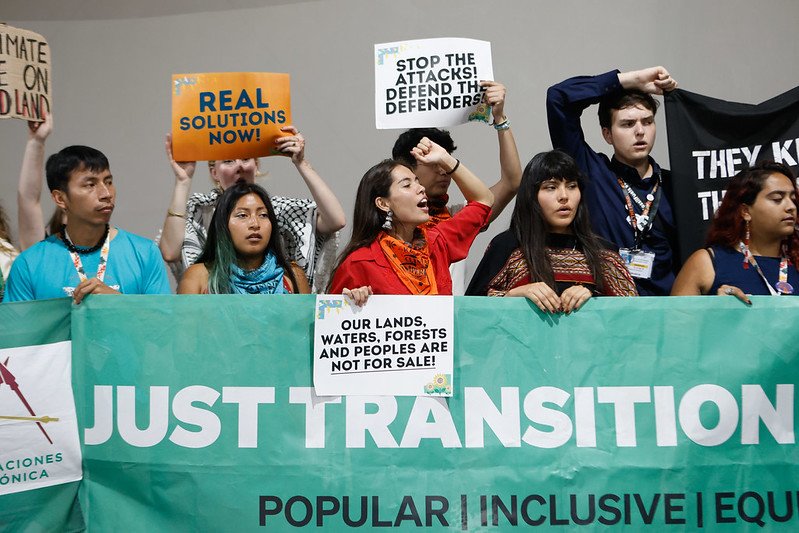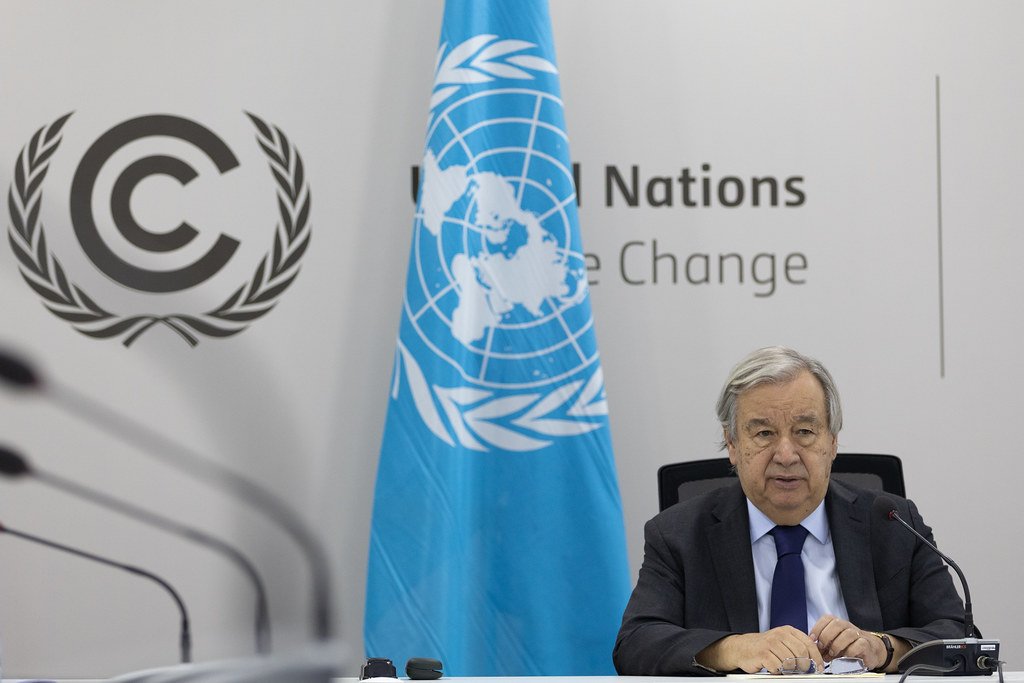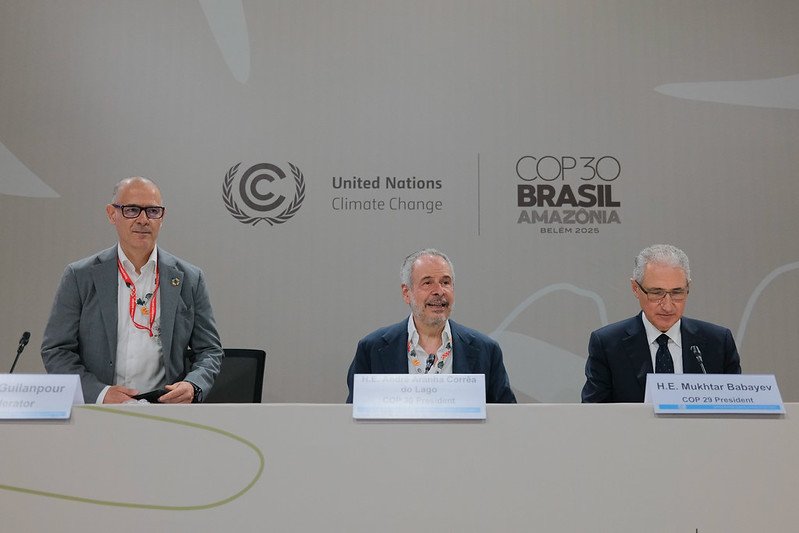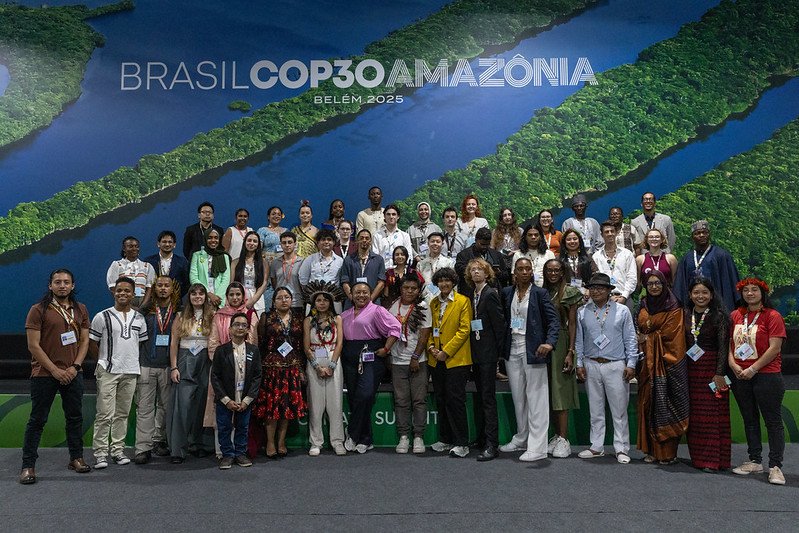
Dhaka, Nov 19, 2025 (EP Desk) — COP30 has entered Day 8 with negotiations intensifying, political divisions sharpening, and civil-society movements escalating pressure on governments. While technical work has largely concluded, countries remain divided over the future of fossil fuels and the scale and delivery of climate finance. The COP Presidency continued high-level consultations throughout the day and urged delegates to “break the deadlock within hours, not days.”
Negotiations: What Happened on Day 8
a) Fossil Fuel Phase-Out Text Remains Highly Contested
Day 8 saw the release of a new consolidated draft containing three options on fossil fuel transition:
1. “Phase-out of fossil fuels in line with 1.5°C”
2. “Phasedown of unabated fossil fuels”
3. No reference to reduction, only broad “energy transition” language.

A coalition of vulnerable countries (AOSIS, LDCs, several African and Latin American states) reiterated their stance for a clear phase-out roadmap.
A delegate from a small island state stated: “If the final text does not include a fossil fuel phase-out, we will be negotiating our own extinction.”
Major producers continued pushing back, calling for technological neutrality and carbon-capture flexibility. No breakthrough occurred.
b) Finance Negotiations: Still No Landing Zone
Talks on the New Collective Quantified Goal (NCQG) showed minimal movement. The draft text still contains a wide range—from USD 600 billion to 1.3 trillion annually by 2030—with deep disagreements on:
• grant vs. loan ratios
• historic responsibility
• private vs. public financing
• debt relief mechanisms
Developing countries demanded a stronger commitment from high-income nations. One African negotiator said: “We cannot transition with promises. We need public finance that is predictable, accessible and fair.”
High-income countries insisted on “a realistic goal tied to implementation pathways.”
c) Article 6 Talks Advance Slightly
Technical teams reached preliminary convergence on:
• transparency templates for carbon credit reporting
• baselines for project integrity
However, no agreement yet on:
• avoiding double counting
• rules for cross-border transfer of credits
Informal consultations will continue late into the night.
d) Loss & Damage Fund: Progress but No Capital Commitment
Parties largely agreed on operational guidance and governance structures, but the core issue—actual funding commitments—remains open.
Vulnerable countries warned the fund could become “an empty shell without resources.”
2. Civil Society Movements and Mobilization on Day 8
a) Indigenous and Amazonian Groups Intensify Actions
Over 3,000 Indigenous and forest-community activists marched to the main entrance of the Blue Zone, demanding stronger protections for forests and a standalone funding track for Indigenous stewardship.
A Munduruku youth leader said: “We protect the Amazon, but the negotiations do not protect us. We demand rights, not symbolism.”
The march was peaceful but highly visible inside the venue, adding pressure on the presidency.
b) Fossil-Free Coalition Rallies Inside the Blue Zone
Youth groups, scientists and climate-justice networks held coordinated sit-ins calling for a full phase-out of fossil fuels and rejecting carbon-capture-based loopholes.
Chants of “No more false solutions!” echoed through the pavilions.
One youth leader told reporters: “Negotiators are running out of time. The climate will not negotiate with us.”
c) Finance Justice Groups Push Debt Relief Agenda
Civil society networks from Africa, Asia, the Caribbean and Latin America held a joint briefing demanding:
• large-scale debt cancellation
• grant-based climate finance
• loss & damage capitalization
Their statement read: “Climate finance cannot be built on the suffering of indebted nations.”

3. COP30 Presidency Briefing – Day 8
COP30 President André Corrêa do Lago held a tense evening briefing, acknowledging slow progress but urging parties to shift into solution mode.
Key messages from the Presidency:
• “We have entered the political phase. Technical work is done. Now choices must be made.”
• “There is no credible outcome without progress on finance.”
• “All parties must show flexibility. No one will get 100% of what they want.”
• He confirmed ministerial-level consultations will continue overnight.
• Presidency will release a new streamlined draft text by early Day 9.
Corrêa do Lago also praised civil society: “Their voices remind us of why we are here. We encourage peaceful mobilization. It strengthens the process, not weakens it.”
However, he cautioned: “We must keep the focus on negotiation, not confrontation.”

4. Outlook: What Day 8 Means for the Final Stretch
• Negotiations are at a critical stage, with fossil fuel wording and finance representing the biggest obstacles.
• No consensus is yet visible, but several ministers signaled willingness to find “creative compromises.”
• Civil society pressure is shaping the tone, especially around accountability and ambition.
• The Presidency appears determined to avoid a weak or procedural outcome, but the path remains narrow.
Day 8 at COP30 concluded with intensified diplomacy, heightened civil-society mobilization, and a Presidency pushing hard for breakthroughs.
Yet, the central political questions—who pays, and how fast fossil fuels decline—remain unresolved.
As one veteran negotiator remarked: “We know the science. We know the solutions. What we lack is the political courage. Day 9 will show whether we find it.”



